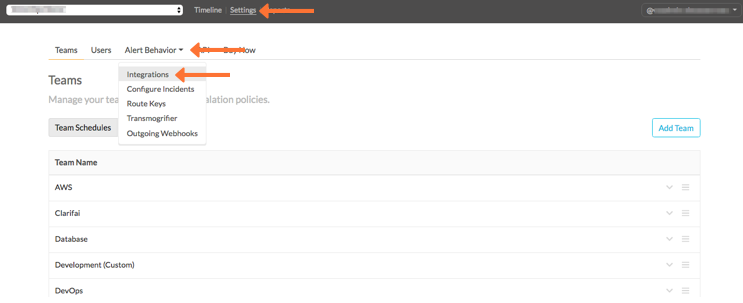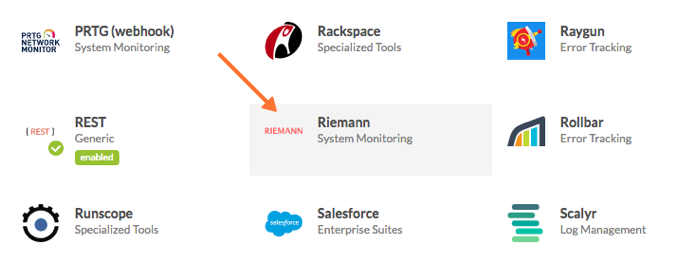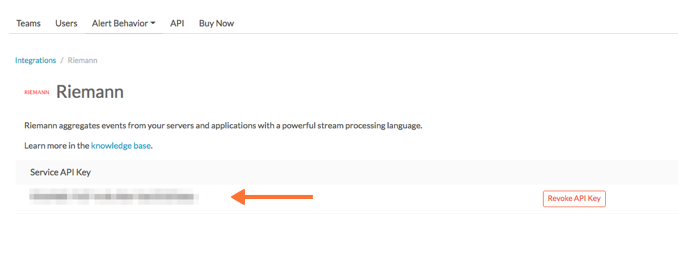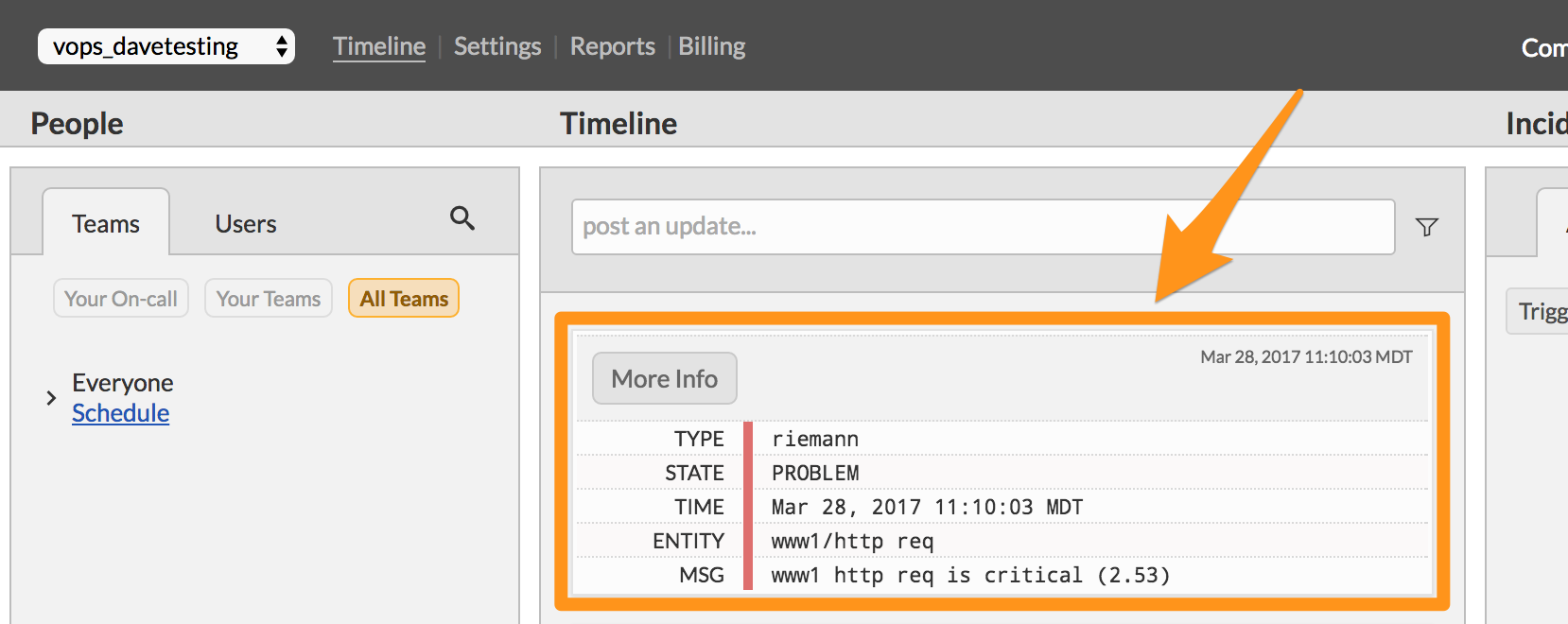Riemann aggregates events from your servers and applications with a powerful stream processing language. The following guide will walk you through this integration.
In VictorOps
From the VictorOps web portal, select Settings >> Alert Behavior >> Integrations

Select the Riemann integration option.

Copy the Service API Key to the clipboard.

In Riemann
In the Riemann configuration file (“etc/riemann.config” for example), add the following code to configure Riemann to send alerts to VictorOps. Make sure to use your API key from the “In VictorOps” section and the actual routing key you intend to use.
(let [vo (victorops "1394aab4-XXXXX-XXXX-XXXX-XXXXXXXXXXXX" "Sample_route")]
(streams
(changed-state
(where (state "info")
(:info vo))
(where (state "warning")
(:resolve vo))
(where (state "critical")
(:critical vo))
(where (state "ok")
(:recovery vo)))))
Restart Riemann from your Riemann directory in the command line.
$ bin/riemann etc/riemann.config
Alerts from Riemann should now appear in VictorOps as they are generated. To test that the integration is working properly, manually trigger an alert in Riemann with the following steps (assumes you have installed riemann-client as detailed in the Riemann Quickstart).
Start irb from the command line in your Riemann directory.
$ irb -r riemann/client
Enter these two commands into the irb prompt.
irb> r = Riemann::Client.new
irb> r << { host: "www1", service: "http req", metric: 2.53, state: "critical", description: "Request took 2.53 seconds.", tags: ["http"]}
Confirm that the alert is displayed in your VictorOps timeline.

You have completed setting up this integration. If you have any questions, please contact VictorOps support.